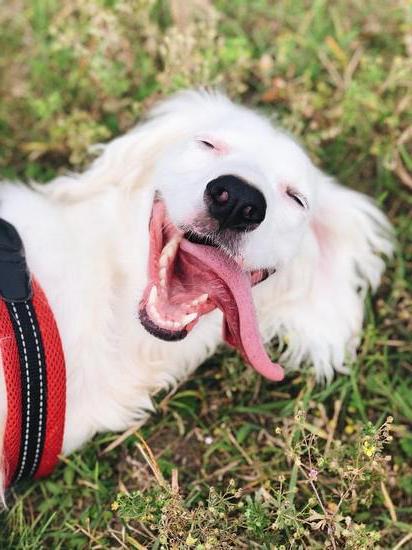Police dogs play a vital role in law enforcement, assisting officers in various tasks such as apprehending suspects and detecting illegal substances. However, not all dogs that undergo police training are able to successfully complete the rigorous program. So, what happens to dogs that don’t pass police training? This article delves into the selection process for police dogs, the intense training they undergo, and the options available for those who do not make the cut.
The process of selecting suitable candidates for police dog training is meticulous, with specific characteristics and skills required for success in this demanding role. Dogs must possess traits such as agility, intelligence, and an excellent sense of smell to excel in police work. Once selected, these dogs undergo extensive training ranging from basic obedience to specialized skills such as tracking and drug detection.
Despite their best efforts, some dogs may not meet the stringent standards set for police work. When a dog doesn’t pass police training, it can be due to various reasons such as temperament issues or lack of required skills.
However, there are reassignment opportunities within law enforcement agencies or adoption programs available for these dogs to transition into new roles and homes. The emotional impact on handlers and trainers when a dog doesn’t pass police training is significant, as they develop strong bonds with these animals throughout the training process.
The Selection Process for Police Dogs
Police dogs play a crucial role in law enforcement, assisting officers in various tasks such as tracking suspects, detecting drugs, and providing protection. The selection process for police dogs is a meticulous one, ensuring that only the most suitable candidates are chosen to undergo training. When selecting potential police dogs, certain characteristics and skills are evaluated to determine their suitability for the job.
- Temperament: Police dogs need to have a stable and confident temperament to handle stressful situations.
- Drives: Dogs must possess strong hunt, prey, and defense drives to excel in tasks such as tracking and apprehension.
- Sociability: Despite being working dogs, police dogs still need to be social and able to interact positively with their handlers and other officers.
- Physical attributes: Factors like strength, agility, endurance, and overall health are also taken into consideration during the selection process.
During the evaluation stage, trainers assess each dog’s potential based on these criteria. While some dogs may not meet all the necessary requirements during this phase, they still undergo rigorous training to determine their capabilities. So what happens to dogs that don’t pass police training?
The Training Process for Police Dogs
When a dog doesn’t pass police training, it can be a disappointing outcome for both the canine and their handlers. There are various reasons why a dog may not succeed in police training, such as temperament issues, health concerns, or simply not meeting the required performance standards. In such cases, these dogs do not go on to become active duty police dogs but are redirected towards other opportunities that suit their abilities and needs.
One of the common options for dogs that don’t pass police training is reassignment within different roles. Not all dogs are suited to be patrol or detection canines, but they may excel in areas like search and rescue, therapy work, or even as service animals for individuals with disabilities. By identifying the unique strengths of each dog that didn’t make it through police training, suitable alternative careers can be found to ensure they lead fulfilling lives.
In addition to reassignment opportunities, many law enforcement agencies and organizations have adoption programs specifically designed for dogs that don’t pass police training. This allows these animals to find loving homes where they can still thrive and receive the care and attention they deserve. Adoption is often seen as a positive outcome for these dogs, as they get the chance to live as cherished pets while also potentially contributing the community in other ways.
| Reassignment Opportunities | Adoption Programs |
|---|---|
| Search and rescue roles | Loving homes with families |
| Therapy work | Potential new careers |
What Happens When a Dog Doesn’t Pass Police Training
When a dog doesn’t pass police training, it can be due to various reasons that ultimately affect their suitability for the demands of police work. One common reason is a lack of drive or motivation in performing the tasks required of a police dog.
Some dogs may not have the necessary determination or focus to excel in high-stress situations that are encountered in law enforcement scenarios. Additionally, temperament issues such as fearfulness, aggression, or excessive excitability can also lead to a dog not passing police training.
Furthermore, health concerns can play a significant role in a dog’s inability to complete police training successfully. Physical conditions like hip dysplasia or other musculoskeletal issues may prevent a dog from meeting the physical requirements needed for police work. In some cases, even minor health problems can hinder a dog’s performance during training and affect their overall suitability as a police dog.
It is essential for trainers and handlers to closely monitor each dog’s progress during training to identify any signs of potential challenges that may prevent them from passing. By understanding the reasons behind why some dogs don’t pass police training, appropriate measures can be taken to ensure that these dogs are provided with alternative opportunities that better suit their individual strengths and needs.
| Reasons Dogs Don’t Pass Police Training | Examples |
|---|---|
| Lack of Drive/Motivation | Unwillingness to perform required tasks |
| Temperament Issues | Fearfulness, Aggression, Excitability |
| Health Concerns | Hip Dysplasia, Musculoskeletal Issues |
Reassignment Opportunities for Dogs That Don’t Pass Police Training
Transition to Other Law Enforcement Agencies
When a dog doesn’t meet the specific requirements or standards of a particular police department, there are still opportunities for reassignment to other law enforcement agencies. Some dogs may excel in different roles within law enforcement, such as search and rescue, detection work for customs or border patrol, or even as therapy dogs for victims of crime. These reassignments allow the dogs to use their unique skills and training in a different capacity while still serving the community.
Transfer to Rehabilitation Programs
In some cases where a police dog fails to pass training due to behavioral issues or health concerns that can be addressed with proper care and training, they may be transferred to rehabilitation programs. These programs focus on addressing and correcting any behavioral problems through specialized training techniques or medical intervention. With dedicated time and effort, these dogs have the chance to overcome their challenges and potentially return to training or find new opportunities.
Retirement With Handler
For some police dogs that don’t pass training due to age-related factors or health concerns that prevent them from continuing their service, there is always the option of retirement with their handler. The bond between a police dog and its handler is often strong, and many handlers choose to adopt their canine partner when they retire from active duty.
This allows the dog to live out their remaining years in a loving home environment where they can enjoy a well-deserved retirement after years of service.
Adoption Programs for Dogs That Don’t Pass Police Training
When a dog doesn’t pass police training, it can be a disappointing outcome for both the canine and the handlers involved in their development. However, various adoption programs have been established to provide these dogs with alternative career paths or loving homes. These programs aim to ensure that the hard work put into training these animals does not go to waste and that they can still lead fulfilling lives.
One option for dogs that don’t pass police training is to enter service or therapy dog programs. These dogs may not have met the stringent requirements of police work, but they can still contribute positively to society by assisting individuals with disabilities or providing emotional support in therapeutic settings. By transitioning into roles where their unique skills are valued, these dogs can make a significant impact on the lives of those they help.
Additionally, there are specialized adoption organizations dedicated to finding suitable homes for dogs that don’t pass police training. These organizations carefully evaluate potential adopters to ensure that they understand the needs of these high-energy and intelligent animals.
Through responsible placement, these dogs can thrive in environments where their strengths are embraced, even if they didn’t quite fit the criteria for police work. Ultimately, these adoption programs offer a second chance for these dedicated animals to find their perfect match and live out their days in comfort and happiness.
The Emotional Impact on Handlers and Trainers When a Dog Doesn’t Pass Police Training
The Bond Between Handlers and Their Canine Partners
The relationship between police dog handlers and their K-9 partners is incredibly strong, built on trust, teamwork, and a deep emotional connection. These handlers devote countless hours to training and working with their dogs, forming a unique bond that goes beyond just being a working team. When a dog doesn’t pass police training, it can be emotionally devastating for the handler who has poured their heart and soul into the partnership.
Coping With Disappointment and Loss
For handlers and trainers, the news that their canine partner did not meet the standards to continue in law enforcement can be heartbreaking. They may feel a sense of disappointment, failure, and loss as they come to terms with the fact that their beloved companion will not be able to serve alongside them in the field. Coping with these emotions is crucial to moving forward, both for the handler/trainer and for the well-being of the dog.
Support Systems for Handlers and Trainers
Recognizing the emotional toll that comes with a dog not passing police training, many law enforcement agencies provide support systems for handlers and trainers during this difficult time. Whether it’s through counseling services, peer support groups, or specially designed programs to help cope with grief and loss, these resources are essential in helping officers navigate through the complex feelings that arise when faced with reassigning or transitioning their canine partners.
The support from colleagues, supervisors, friends, and family members also plays a significant role in helping handlers and trainers heal emotionally.
Success Stories of Dogs That Found New Careers or Homes After Not Passing Police Training
While not all dogs may pass police training, that doesn’t mean the end of the road for them. Many of these dogs find alternative career paths or loving homes where they can thrive and make a difference. Here are some success stories of dogs that found new opportunities after not passing police training:
- Therapy Dog: Some dogs excel in providing emotional support and comfort to individuals in need. These dogs often become therapy animals, visiting hospitals, nursing homes, schools, and other facilities to bring joy and companionship to those they interact with.
- SAR (Search and Rescue) Dog: Dogs with a high energy level and strong drive can be trained for search and rescue missions. These dogs play a crucial role in locating missing persons during disasters or emergencies.
- Service Dog: Dogs that don’t pass police training but display excellent obedience skills may be well-suited for becoming service animals. They can assist individuals with disabilities in various tasks, such as mobility support, alerting to medical conditions, or providing emotional support.
It is essential to recognize that each dog has unique qualities and abilities that can be utilized outside of traditional police work. By finding alternative avenues where these dogs can shine, they are given the opportunity to lead fulfilling lives while making a positive impact on society.
- Family Pet: For some dogs, the perfect next chapter involves becoming a beloved family pet. These dogs bring joy and companionship to their adoptive families, forming special bonds that last a lifetime.
- Working Dog in Other Fields: Dogs not suited for police work may excel in other working roles, such as detection work in areas like agriculture (detecting pests), conservation (tracking wildlife), or even sports competitions like agility or obedience trials.
By recognizing and embracing the potential of these dogs beyond police training, we can ensure that they have fulfilling lives while contributing positively to the community around them.
Conclusion
In conclusion, the fate of dogs that do not pass police training is an important aspect that cannot be overlooked in the rigorous process of selecting and training these canines for law enforcement work. While not every dog may meet the specific criteria or standards required for police work, it is essential to ensure that they are provided with appropriate care and opportunities for a fulfilling life after their time in training.
Reassignment opportunities provide a chance for these dogs to excel in different roles within the police force or other agencies that can benefit from their skills. Whether it be search and rescue operations, therapy work, or even becoming service animals for individuals in need, there are various paths available to ensure that these dogs find purpose and fulfillment outside of traditional police work.
Furthermore, adoption programs play a crucial role in ensuring that dogs that do not pass police training are placed in loving homes where they can thrive as beloved pets. These programs not only give these dogs a second chance at a happy life but also provide gratification to families who welcome them with open arms.
It is essential to recognize and appreciate the dedication and commitment of handlers and trainers involved in the process, acknowledging the emotional impact they experience when their canine partners do not succeed in police training. Ultimately, by highlighting the importance of caring for dogs that do not pass police training, we uphold our responsibility to ensure their well-being and future happiness beyond their initial career path.
Frequently Asked Questions
What Happens to Failed Military Dogs?
Failed military dogs typically go through a process of rehoming and may be adopted by civilian families or transferred to law enforcement agencies. They are often given the opportunity for a second career outside of the military.
Why Do Dogs Fail Service Training?
Dogs can fail service training for various reasons, such as health issues, temperament concerns, lack of motivation, or not meeting specific criteria for the job. Each dog is evaluated individually to determine their suitability.
Are Police Dogs Put Down After Service?
Police dogs are not automatically put down after their service careers end. Many retire and live out their remaining years in loving homes with their handler or another family. Some may also be adopted by civilians or stay with the law enforcement agency in a different capacity.

Welcome to the blog! I am a professional dog trainer and have been working with dogs for many years. In this blog, I will be discussing various topics related to dog training, including tips, tricks, and advice. I hope you find this information helpful and informative. Thanks for reading!





